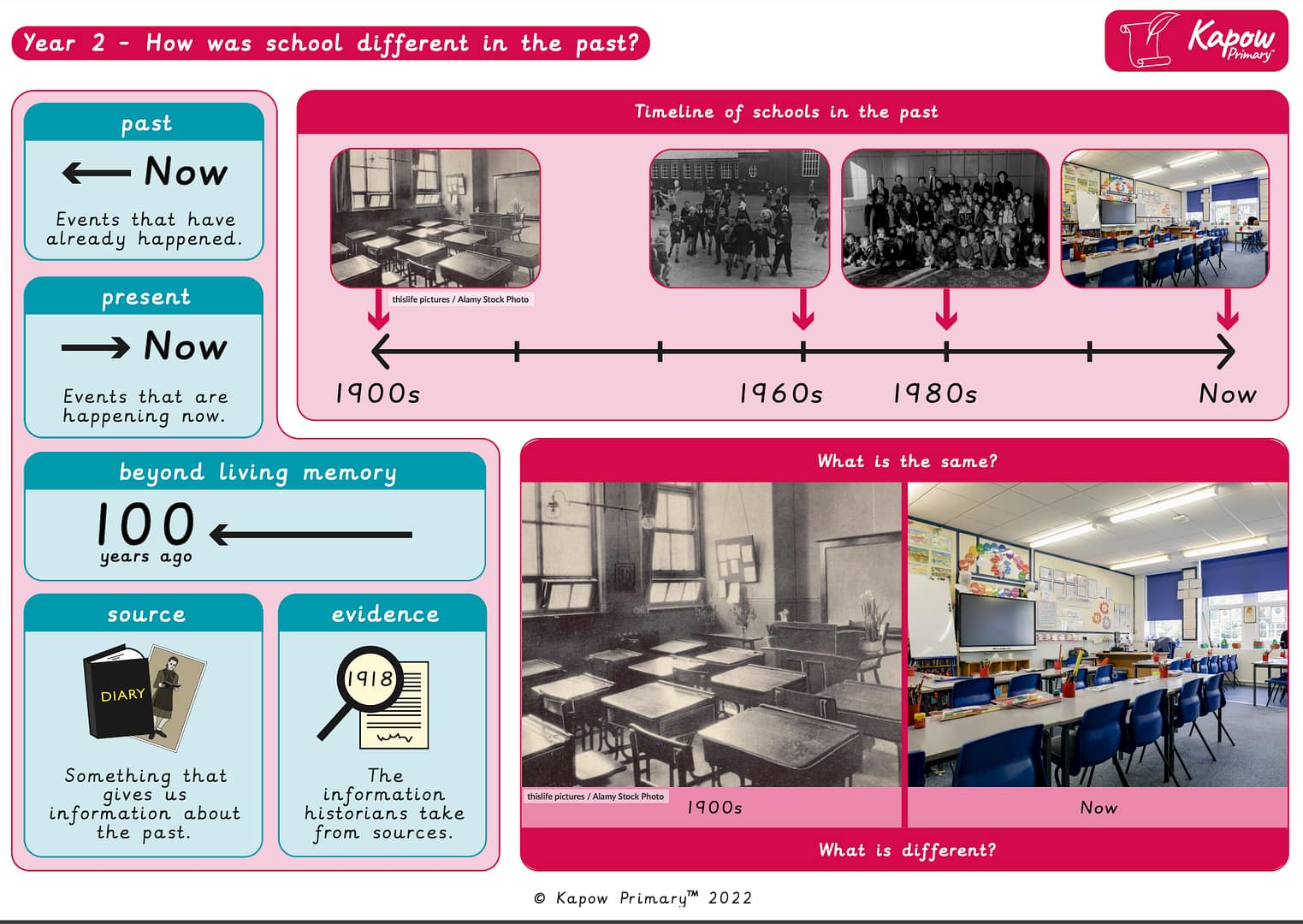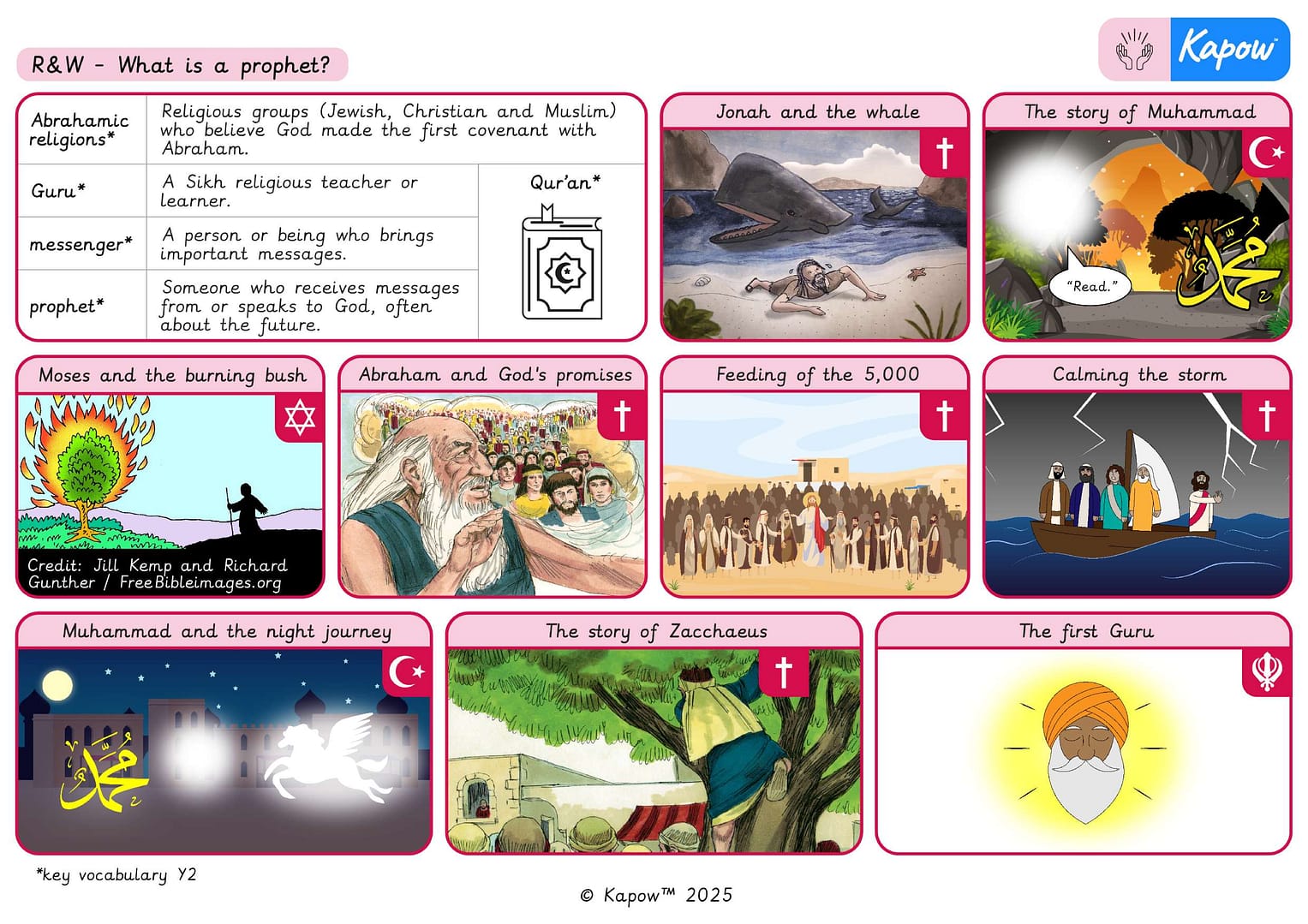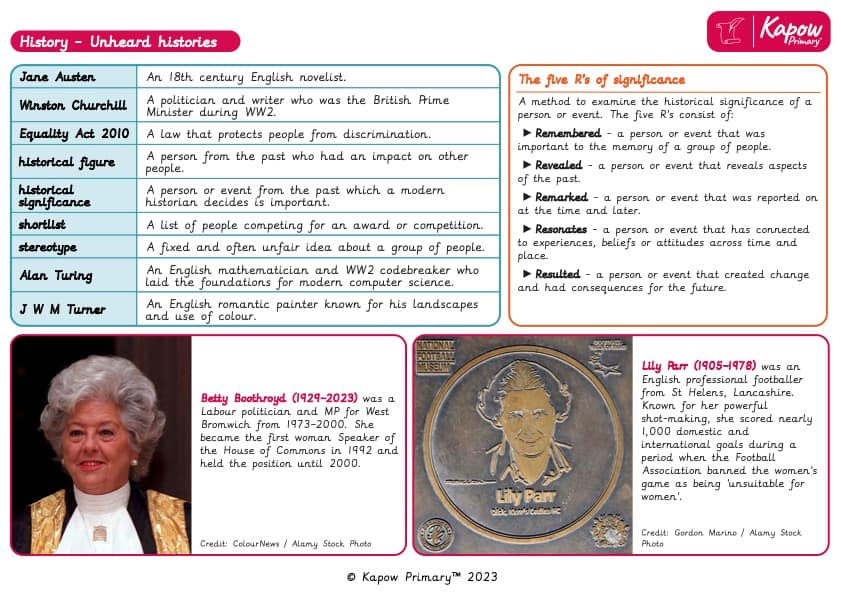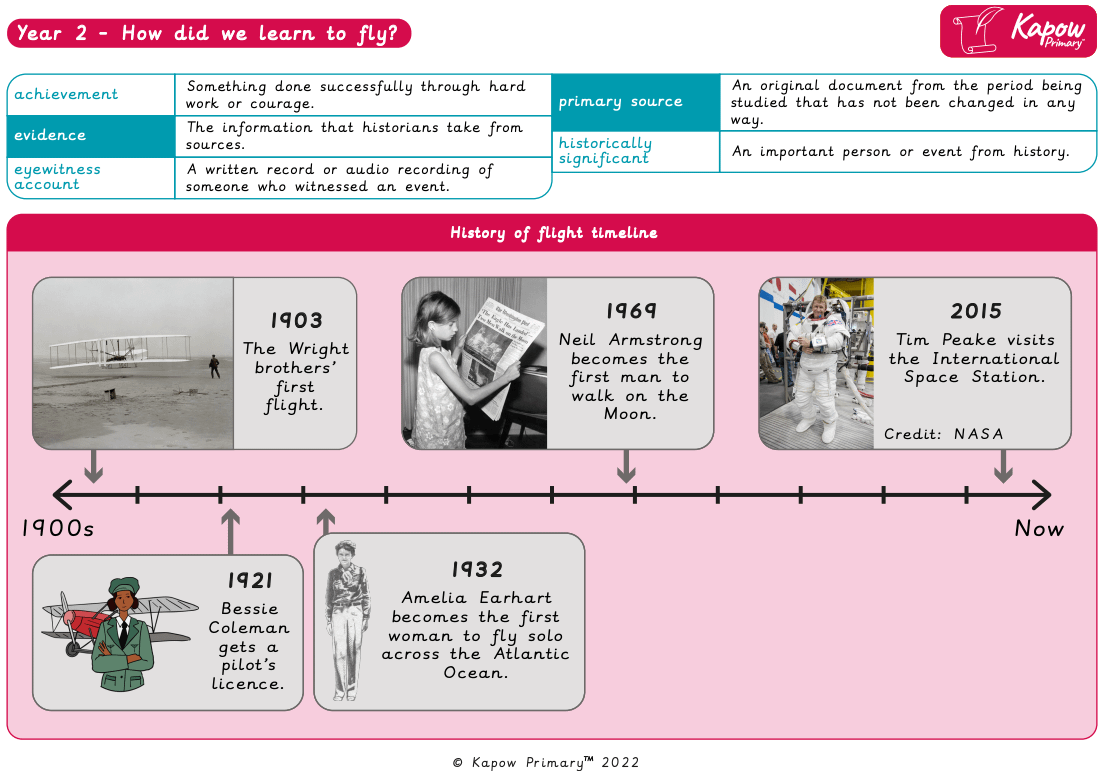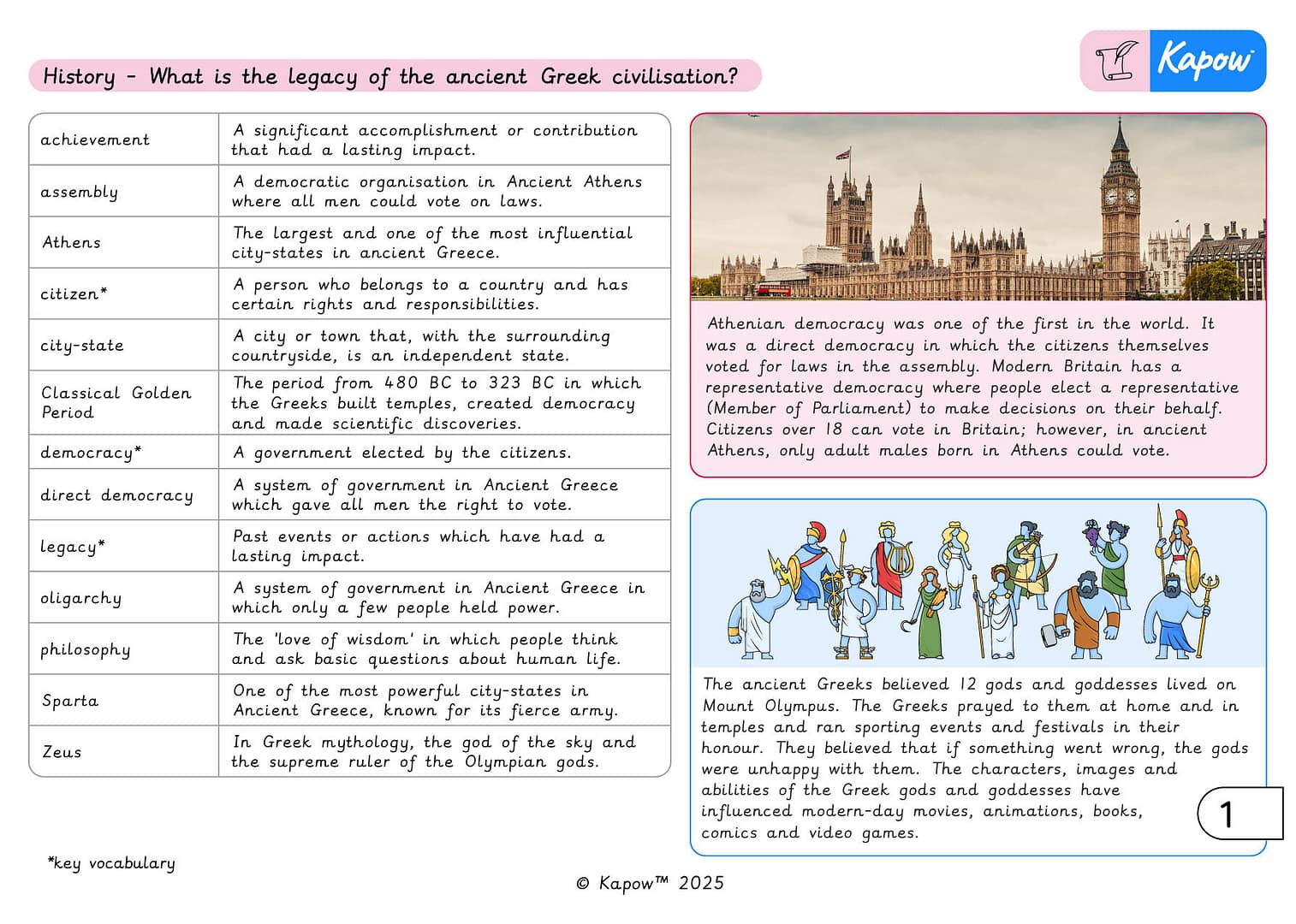
A Knowledge organiser that captures the essential knowledge and skills learnt throughout the unit History, Year 5/6 (B), What is the legacy of the ancient Greek civilisation?
This History resource is designed to support children as they explore ancient Greek civilisation, including its gods and goddesses, the city-states and the enduring impact of Greek philosophers and democracy.
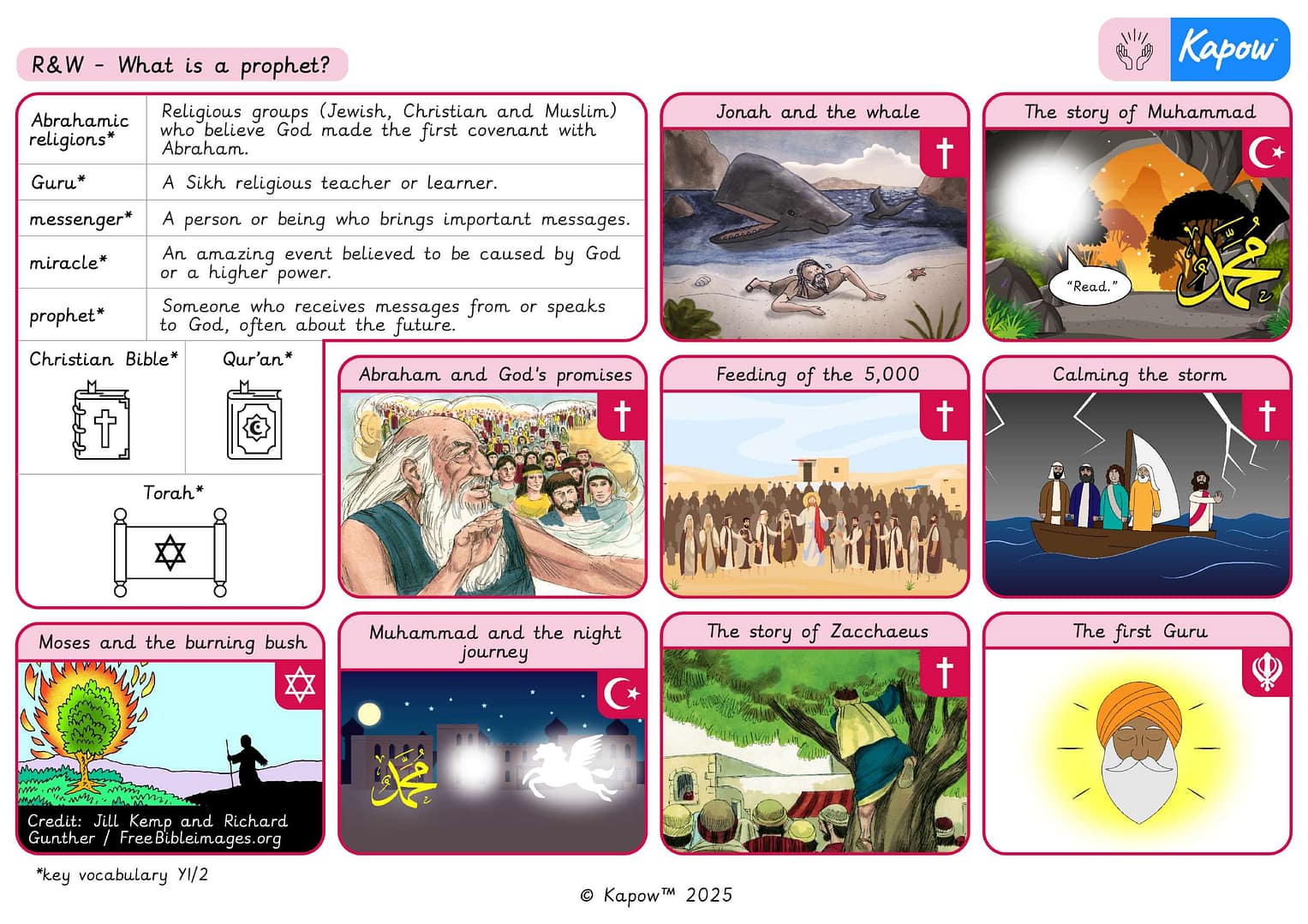
A Knowledge organiser that captures the essential knowledge and skills learnt throughout the mixed-age unit Religion and Worldviews, Y1/2 (A): What is a prophet?
This resource is designed to support children as they explore the role of prophets in different religious traditions. It introduces key vocabulary and stories linked to figures such as Moses, Muhammad, Abraham and the first Sikh Guru. It highlights how prophets are seen as messengers who receive and share important messages from God. This resource is ideal for consolidating essential knowledge and encouraging understanding of the shared and unique beliefs within Abrahamic religions and beyond.
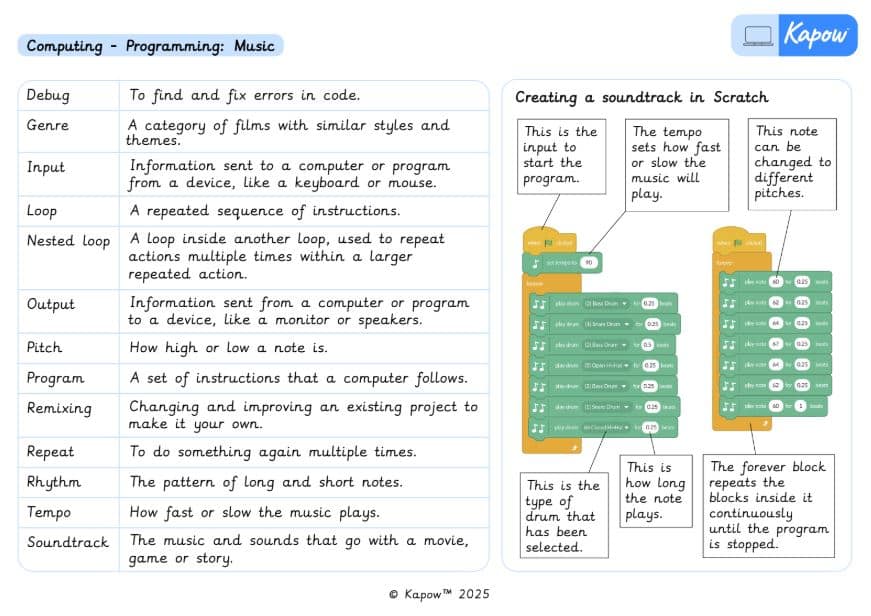
A Knowledge organiser that captures the essential knowledge and skills learnt throughout the unit Computing, Year 5, *New* Programming 1: Music.
This resource is designed to support the children as they explore programming music using Scratch. It highlights key vocabulary and concepts, including loops, sprites and code blocks, alongside musical terms such as rhythm, pitch, tempo and timbre. The resource explains Scratch’s visual coding interface and is perfect for consolidating essential knowledge and developing both coding and musical creativity through hands-on programming tasks. There are also connections to the Upper Key Stage 2 Music lessons.
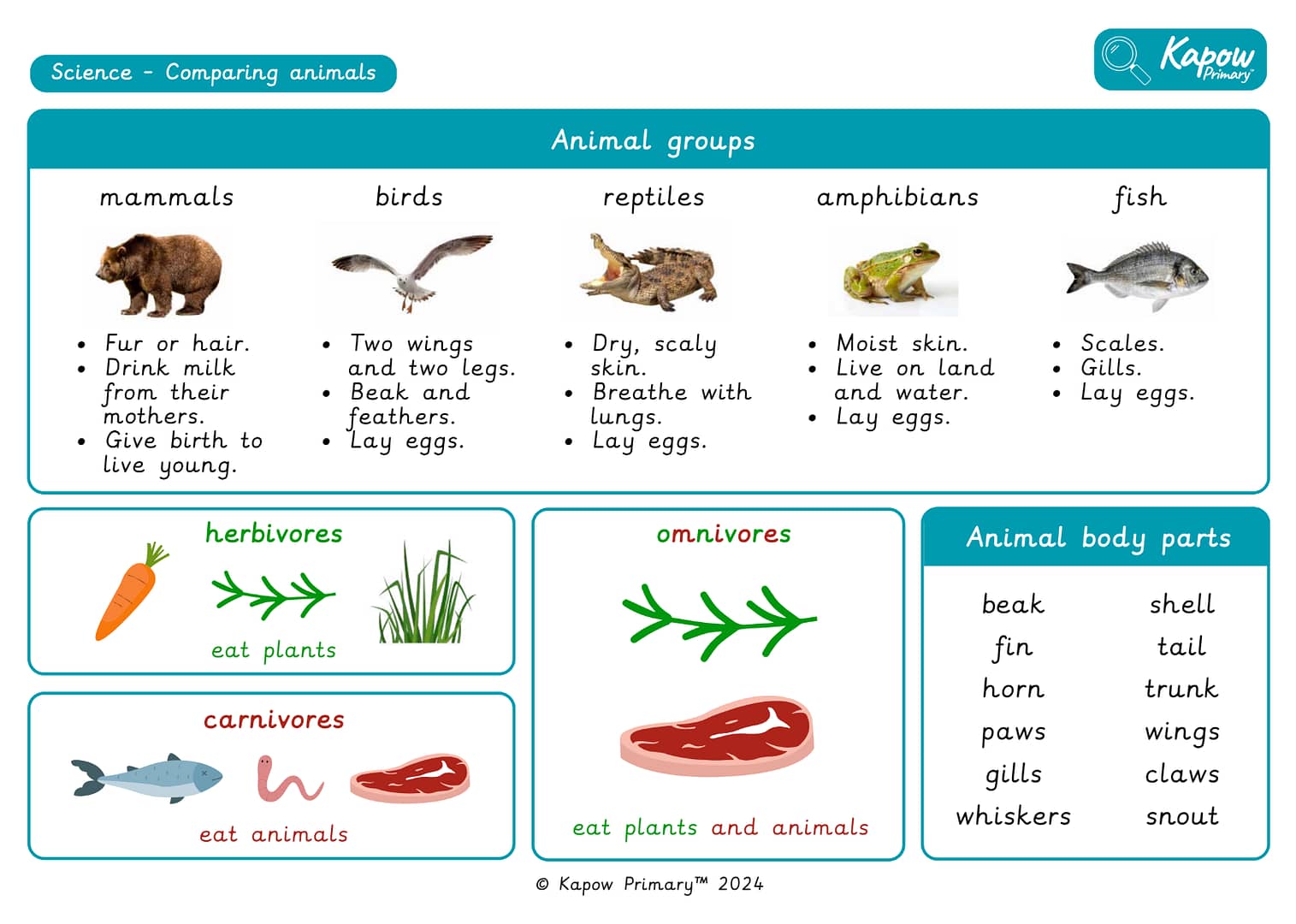
A Knowledge organiser that captures the essential knowledge and skills learnt throughout the mixed-age unit Science, Y1/2 (B): Animals, including humans: Comparing animals.
This resource is designed to support the children as they explore and compare animals, including humans. It highlights key vocabulary, animal groups (mammals, birds, reptiles, amphibians and fish) and their defining features. It also covers animal diets, such as herbivores, carnivores and omnivores, and identifies key body parts like fins, wings and tails. It is perfect for consolidating essential knowledge and fostering an understanding of animal classification and diversity in the natural world.
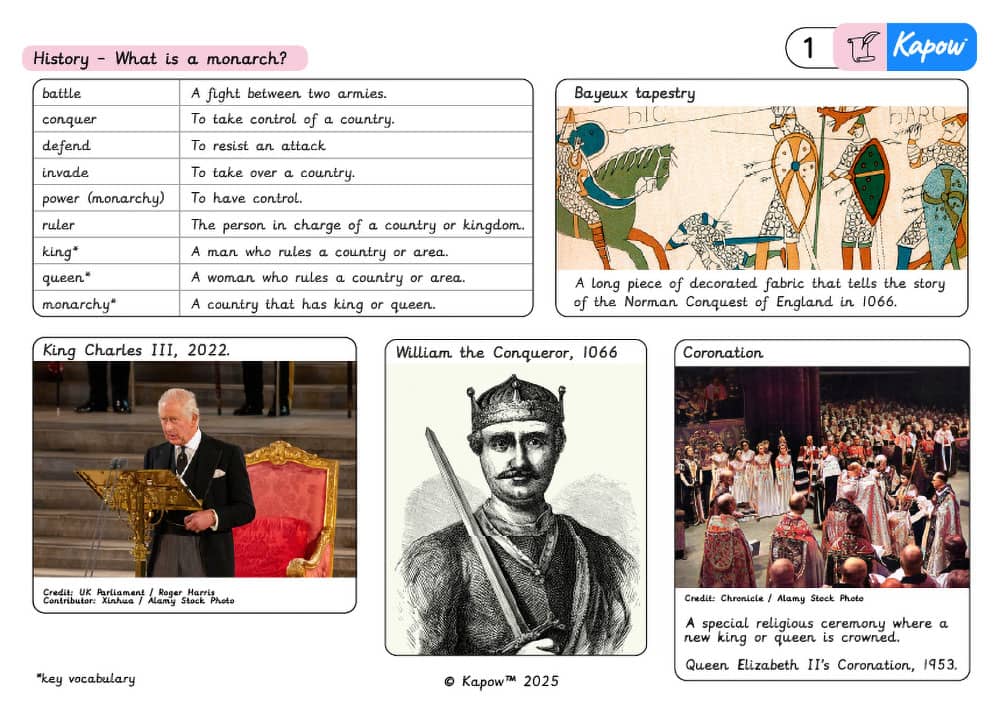
A Knowledge organiser that captures the essential knowledge and skills learnt throughout the mixed-age unit History, Y1/2, What is a monarch?
This History resource is designed to support children as they explore monarchy now and in the past. It highlights key vocabulary, features significant monarchs and includes images to show how castles changed over time. It is perfect for consolidating essential knowledge.


